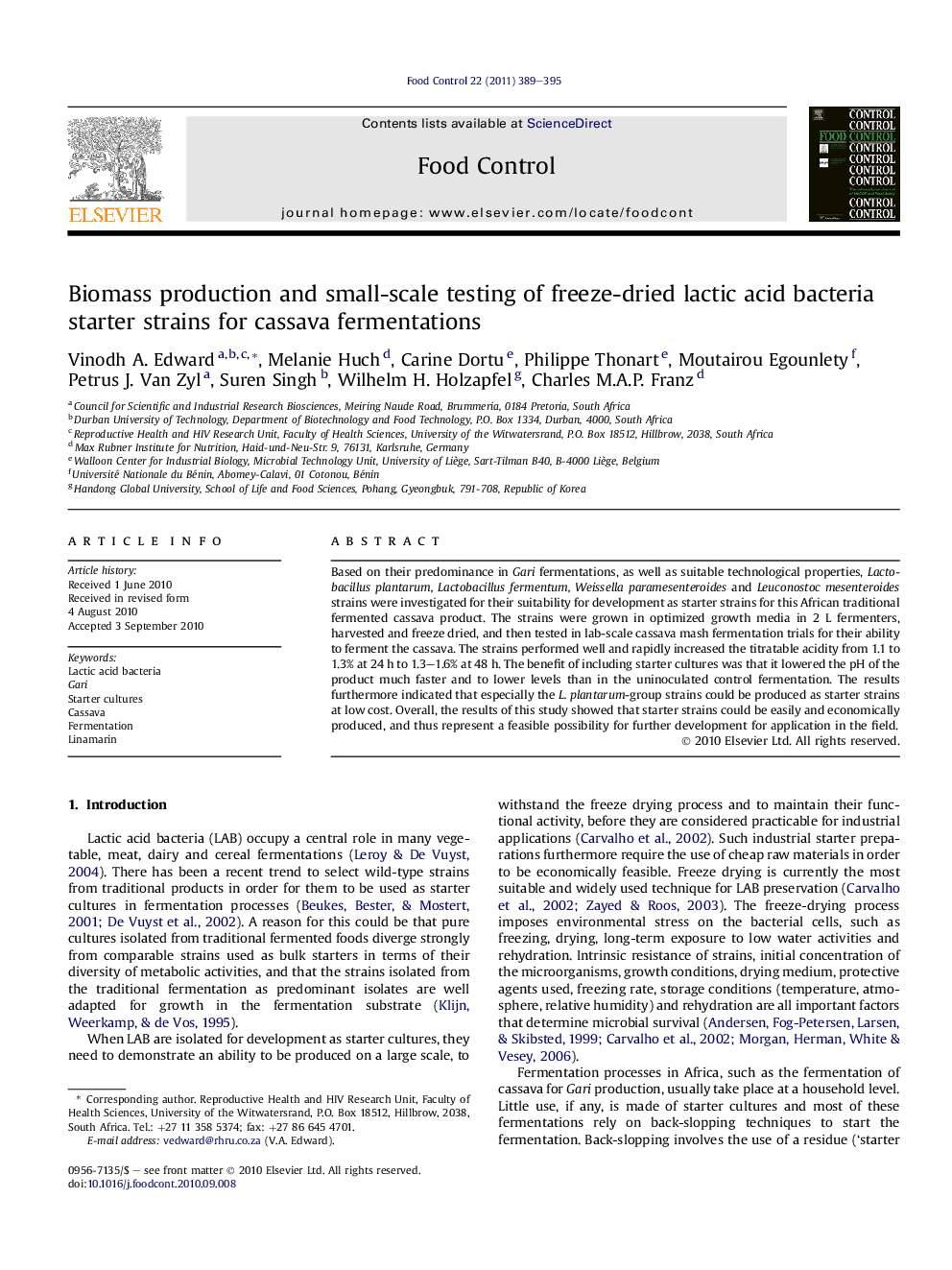| Article ID | Journal | Published Year | Pages | File Type |
|---|---|---|---|---|
| 4559667 | Food Control | 2011 | 7 Pages |
Based on their predominance in Gari fermentations, as well as suitable technological properties, Lactobacillus plantarum, Lactobacillus fermentum, Weissella paramesenteroides and Leuconostoc mesenteroides strains were investigated for their suitability for development as starter strains for this African traditional fermented cassava product. The strains were grown in optimized growth media in 2 L fermenters, harvested and freeze dried, and then tested in lab-scale cassava mash fermentation trials for their ability to ferment the cassava. The strains performed well and rapidly increased the titratable acidity from 1.1 to 1.3% at 24 h to 1.3–1.6% at 48 h. The benefit of including starter cultures was that it lowered the pH of the product much faster and to lower levels than in the uninoculated control fermentation. The results furthermore indicated that especially the L. plantarum-group strains could be produced as starter strains at low cost. Overall, the results of this study showed that starter strains could be easily and economically produced, and thus represent a feasible possibility for further development for application in the field.
